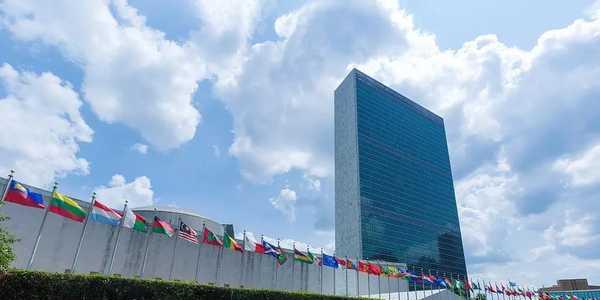US Vetoes UN Gaza Ceasefire Resolution: Analyzing the Implications
On November 20, the UN Security Council’s resolution calling for an immediate ceasefire in Gaza was vetoed by the US, despite receiving support from 14 other council members. The resolution emphasized humanitarian concerns.

The recent US veto of the UN Security Council resolution on Gaza marks another critical moment in the ongoing Israel-Hamas conflict. This development carries significant implications for regional stability and humanitarian efforts in Gaza.
The resolution, proposed by ten non-permanent Security Council members, called for three key actions: an immediate and unconditional permanent ceasefire, the release of all hostages, and unhindered humanitarian access to Gaza. While receiving overwhelming support with 14 votes in favor, the US stood alone in opposition.
China’s UN representative, Fu Cong, highlighted the escalating human cost, noting that Palestinian civilian casualties have increased dramatically with each US veto. The death toll has risen from 3,000 during the first US veto to over 44,000 currently. This pattern raises serious questions about the effectiveness of the Security Council in addressing humanitarian crises.
The Palestinian UN representative delivered an emotionally charged response, questioning whether Palestinians are being treated differently due to their nationality, religion, or ethnicity. This sentiment reflects a growing frustration with what some perceive as double standards in international law application.
Israel’s position remains firm that no ceasefire can proceed without the release of hostages held by Hamas. The US supports this stance, arguing that the resolution’s failure to explicitly link ceasefire conditions with hostage release makes it impractical.
The humanitarian situation in Gaza continues to deteriorate. The United Nations Relief and Works Agency (UNRWA) remains a crucial lifeline for Palestinian civilians, though its ability to operate effectively has been severely hampered by ongoing military operations.
International reaction to the veto has been mixed. While many Western allies understand the US position regarding hostage concerns, there is growing global pressure for a humanitarian ceasefire. The divide between diplomatic positions and humanitarian imperatives continues to widen.
The situation has created unprecedented tension within the UN system. The repeated use of veto power in this crisis has led many to question the Security Council’s ability to fulfill its mandate of maintaining international peace and security.
The path forward remains uncertain. Without a binding Security Council resolution, diplomatic efforts continue through other channels. However, the effectiveness of these alternative approaches remains to be seen as civilian casualties mount and infrastructure damage in Gaza reaches catastrophic levels.
This latest diplomatic setback at the UN underscores the complex challenge of balancing immediate humanitarian needs with long-term security concerns in one of the world’s most volatile regions.